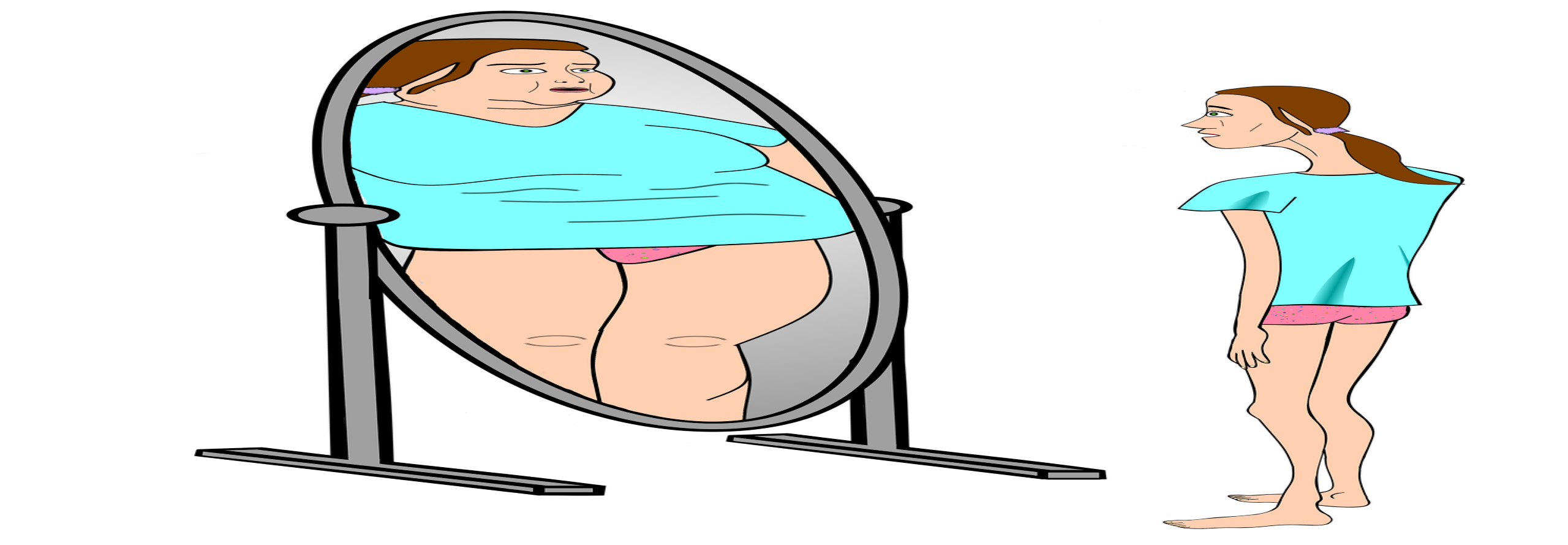The Silent Scream*
Eating disorders are not confined to girls and is common among young men too. The reasons why people develop these conditions depends on each individual and their personal circumstances, though there are some risk factors involved. Having a close family member with an eating disorder, having another mental illness like OCD, family pressures to do well or the expectations to have the perfect body as portrayed on TV or magazines, the lack of fat brought on by the disorder which then interferes with transmission of normal chemical messaging in the brain, a need to be perfect or merely a way of dealing with stress.
However eating disorders can kill and even if they don’t, they can lead to physical and mental changes that can be long term and permanent. Often the skin becomes dry, there is loss of hair and brittle nails, risk of developing osteoporosis and a loss of muscle mass when the body begins to utilise muscle instead of fat to produce energy. Erratic eating can also lead to type II diabetes and stomach discomfort such as bloating. Vomiting erodes teeth enamel and the acidity can cause the oesophagus to become damaged or even rupture.
All our vital organs are cushioned by fat to prevent injury. Often when you cut a whole chicken in preparation for cooking you can see the heart has a layer of fat around it. If the body has depleted its store of fats, it begins to break down muscle which includes the heart. This is especially true in the case of Anorexia Nervosa. Bulimia can also lead to heart failure as vomiting results in the body losing electrolytes and key elements like potassium which are necessary for the normal functioning of the heart. It can also cause dehydration which then leads to constipation, cramps and even kidney failure.
Furthermore, the brain though not the largest of our organs, uses about a fifth of our energy intake. So when this is not available, it leads to a lack of concentration, inability to focus and overall tiredness.
Eating disorders affect oestrogen and testosterone levels, which can lead to the cessation of menstruation in girls.
Sadly, sufferers believe that they are in control of their diet, but actually the disorder is in control of all aspects of their life.
Another factor worth mentioning is that eating disorders often are linked to drug or alcohol abuse. The drugs such as Amphetamines or alcohol can help to suppress appetite and some drugs make you feel good, albeit for a short period. Drugs and alcohol are linked to the reward centres in the brain and so are eating disorders.
Can you overcome an eating disorder? Yes, but you need professional help and in some cases this may involve a stay in a special unit. It also cannot be fixed quickly and there will be relapses on the way.
Parents should when they see the physical and mental changes in their child try to communicate with them, but in the end they need to seek professional help. Parents also instead of being critical should be supportive as they would, if their child was physically sick. They also need to be tolerant and deal with the mood swings and other behaviours with patience as in the end it is only by showing unconditional love, will their child be able to love and accept themselves just as they are.
*This article was written by ‘The Common Sense Therapist’, a retired psychologist who lives overseas and wishes to remain anonymous. She has many decades of experience in dealing with various people and aspects of psychology, and is a great source of enlightenment on many things in life.









